Male Breast Augmentation in Greece
Search and Compare the Best Clinics and Doctors at the Lowest Prices for Male Breast Augmentation in Greece

Find the best clinics for Male Breast Augmentation in Greece
No clinics available
Turkey offers the best prices Worldwide
Price: $ 2

- Home
- Greece
Compare Before & After Photos of _procedure_photos.phpMale Breast Augmentation
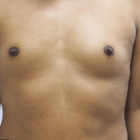
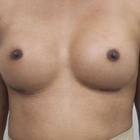
Front view
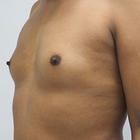
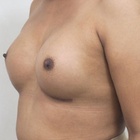
Front view
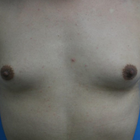

Front view
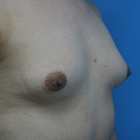

Half-side view
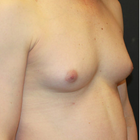
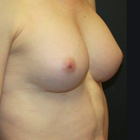
Half-side view
WHY US?
At Medijump, we're making medical easy. You can search, compare, discuss, and book your medical all in one place. We open the door to the best medical providers worldwide, saving you time and energy along the way, and it's all for FREE, no hidden fees, and no price markups guaranteed. So what are you waiting for?

Free

Best Price

Widest Selection

Risk-Free
What you need to know about Male Breast Augmentation in Greece
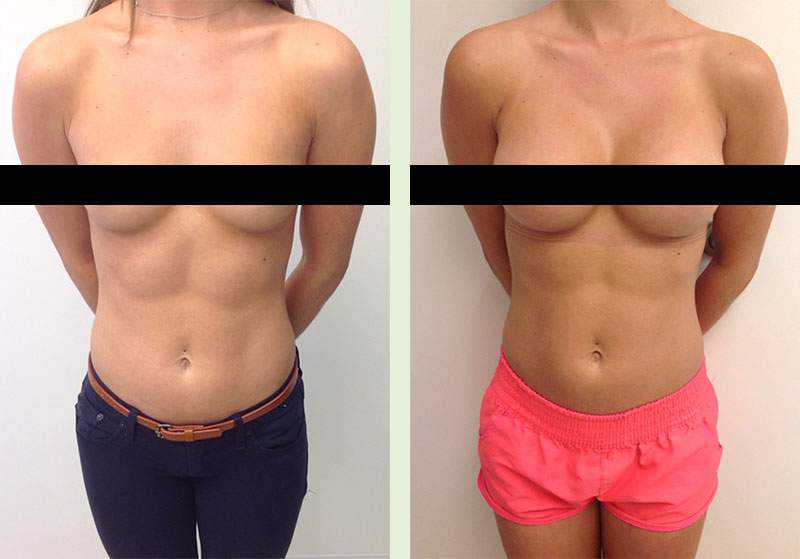
Male breast augmentation is a cosmetic procedure to enlarge the male’s breasts by inserting a breast implant. It is usually done on a male to female surgery to give patients contoured feminine breasts.
The procedure is also done to enhance the pectoral muscles on men whose chests do not seem to respond to exercise or men with Poland’s syndrome. The intervention is often preferred by individuals who wish for a chest that looks more chiseled and symbolizes masculinity. The usual method entails placing implants beneath the pectoral muscles.
What is the cost of Male Breast Augmentation in Greece?
The expense associated with Male Breast Augmentation within Greece fluctuates based on several variables such as the surgeon's level of skill, the intricacy of the operation, the kind of implants employed, and the physical location of the clinic. Therefore, it’s essential to converse in-depth with your medical provider to comprehensively comprehend the total expenditure related to the procedure.
Insurance plans generally don't cover Male Breast Augmentation; however, some medical facilities provide patient-friendly finance choices. It's vital to assess the pros and cons in correlation with your personal financial health strategies and determine how it aligns with your budget. Investing in your self-perception and physical appearance can potentially provide invaluable long-term benefits.
What Does the Procedure Involve?
Male breast augmentation is carried out under general anesthetic. Your surgeon starts by making an incision in an inconspicuous area, usually under the breast along the natural skin fold, to make sure the scar is unnoticeable. Then, they place the implant either under the chest muscles or behind the breast tissue. The implants can be made from silicone gel or saline, and the size is adjusted based on your preferences.
How Long Should I Stay in Greece for a Male Breast Augmentation Procedure?
The length of your stay in Greece after a Male Breast Augmentation is subject to certain variables. Generally, individuals are cautioned to remain in the vicinity for around a week or two following the surgery. This time frame accommodates the preliminary healing stage and facilitates the management of any immediate complications post-procedure.
In this time, your doctor will keep track of your recuperation process via planned follow-up visits. These check-ups serve as a vehicle to monitor the healing process, extract stitches, and check for any signs of infection or inherited issues. Adherence to this schedule of revisits is of utmost importance.
However, it is crucial to remember that everyone's healing experience is individual. Aspects such as age, overall physical wellness, and the degree of observance to the instructions given after the procedure can sway your recovery. Some people might necessitate an extended stay in Greece, particularly if they encounter any complications or if their recovery pace is slower than anticipated. Therefore, it's imperative to have a conversation about this with your surgeon, who can furnish a more precise timeline based on your particular circumstance, promoting a secure and effective recuperation.
What's the Recovery Time for Male Breast Augmentation Procedures in Greece?
You may feel uncomfortable for the first few days and your doctor will give you pain medication to manage the discomfort, so you may need to rest as much as possible during this period. The recovery period until you can go back to your normal routine (including intense exercise) may take about 4 to 6 weeks, but you should be able to return to work within 1 or 2 weeks.
Following the operation, it's fairly common for patients to feel some discomfort, along with swelling and bruising. These are standard postoperative signs that will slowly fade with time. Medical practitioners commonly prescribe pharmaceutical drugs to manage pain and to reduce bruising during this timeframe. Regular doctor visits for postoperative reviews are suggested to keep track of the healing process and promptly deal with any arising complications.
Furthermore, it's advised to avoid demanding activities such as heavy weight lifting and intense exercises for a minimum of four to six weeks after the treatment. This precaution ensures optimal healing of the chest area and minimizes the probability of post-surgical complications. Always remember, healing requires time and patience. Although resuming daily activities is important, giving your body the required time to fully recuperate from the operation is equally crucial.
What sort of Aftercare is Required for Male Breast Augmentation Procedures in Greece?
It is important to follow your surgeon’s post-operative instruction to avoid any complications and to make sure that the wounds will heal properly. Your surgeon’s instruction may include restrictions, diet, exercise, and wound care. Since some implants need to be replaced after about 10 years, make sure you attend regular checkups with your local doctor.
Keeping regular check-ins with your medical professional is essential to keep track of your recovery journey, modify your post-treatment care if required, and tackle any arising issues swiftly. The post-treatment regimen also consists of particular instructions related to physical movement and workout. Mild physical exercise might be recommended for better blood flow, but demanding activity or chest-focused exercises are generally not permitted for a specific amount of time.
What's the Success Rate of Male Breast Augmentation Procedures in Greece?
In general, the success rate of male breast augmentation is similar to female breast augmentation, which is around 90% to 98%. This is notably high.
The advancements in medical surgery technology, coupled with the proficiency of the medical experts, generally result in a noticeable enhancement in the physical aesthetics and self-assurance of the majority of males who opt for this procedure. Furthermore, due to the refined chest shape and muscle outline achieved, patients have reported a significant level of satisfaction.
However, akin to other medical interventions, the effectiveness of a Male Breast Augmentation is largely influenced by personal variables. These could comprise the overall wellbeing of the patient, the way their body reacts to the surgery, the surgeon's skill, and compliance with guidelines for care post-surgery.
Are there Alternatives to Male Breast Augmentation Procedures in Greece?
Surely, other choices exist for Male Breast Augmentation techniques in Greece. One such approach entails embarking on natural chest enhancement. This involves a regimen of chest workouts and a nutritional program aimed at boosting the bulk and power of the pectoral muscles. Though this pathway may be more time-consuming, it could provide a gradual, naturally appearing augmentation in chest size without the price tag and potential hazards tied to surgery.
Hormonal therapies present another viable alternative, particularly for transgender men. These therapies seek to encourage the formation of male secondary sexual traits, such as an uptick in muscle mass, body hair, and a more profound voice. However, it's crucial to consult a medical practitioner before beginning these therapies due to the potential side effects.
Lastly, some men might select a non-surgical technique like the injection of fillers or fat transfer to enhance the contour and fullness of the chest. However, these procedures yield temporary outcomes and may necessitate repeat procedures. It is advisable to consult with your surgeon about these alternatives.
What Should You Expect Before and After the Procedure
Before undergoing the Male Breast Augmentation, your healthcare professional will assess your medical history, carry out physical assessments, and converse about your cosmetic objectives to evaluate if you're fit for the procedure. Various diagnostic examinations may be necessary to ascertain your general health condition. Your surgical specialist will provide information about the impending procedure, discuss anticipated risks, and outline the probable result. Those who smoke will receive advice to stop several weeks prior to the procedure as nicotine may obstruct the healing process. Additionally, you might be instructed to adhere to specific dietary guidelines and discontinue certain medications.
Soon after the Male Breast Augmentation, it's common to experience some discomfort, inflammation, and bruising in the chest region. This usually decreases steadily over time. Over-the-counter drugs can be used to alleviate the discomfort. Typically, the use of a supportive compression garment is suggested to reduce swelling and aid the new chest shape during the recovery phase.
What are the Potential Risks of Male Breast Augmentation?
Although most patients are happy with the outcome of the surgery, it is important to be well-informed about the side effects and risks before you decide to have it, which are:
- Bleeding and infection
- Seroma
- Hematoma
- Asymmetry and dissatisfaction
- Implant shifting or displacement
- Numbness of the upper arm
- Unfavorable scarring
- Allergic reaction to the anesthesia.
Whilst the information presented here has been accurately sourced and verified by a medical professional for its accuracy, it is still advised to consult with your doctor before pursuing a medical treatment at one of the listed medical providers
No Time?
Tell us what you're looking for and we'll reachout to the top clinics all at once
Enquire Now

Popular Procedures in Greece
Price on Request

Prices Start From $692

Prices Start From $556

Prices Start From $2,473

Recommended Medical Centers in Greece for procedures similar to Male Breast Augmentation

- Interpreter services
- Translation service
- Religious facilities
- Medical records transfer
- Medical travel insurance
- Health insurance coordination
- TV in the room
- Safe in the room
- Phone in the room
- Private rooms for patients available

- Interpreter services
- Translation service
- Religious facilities
- Medical records transfer
- Medical travel insurance
- Health insurance coordination
- TV in the room
- Safe in the room
- Phone in the room
- Private rooms for patients available

- Interpreter services
- Translation service
- Religious facilities
- Medical records transfer
- Medical travel insurance
- Health insurance coordination
- TV in the room
- Safe in the room
- Phone in the room
- Private rooms for patients available

- Interpreter services
- Translation service
- Religious facilities
- Medical records transfer
- Medical travel insurance
- Health insurance coordination
- TV in the room
- Safe in the room
- Phone in the room
- Private rooms for patients available

- Interpreter services
- Translation service
- Religious facilities
- Medical records transfer
- Medical travel insurance
- Health insurance coordination
- TV in the room
- Safe in the room
- Phone in the room
- Private rooms for patients available

- Interpreter services
- Translation service
- Religious facilities
- Medical records transfer
- Medical travel insurance
- Health insurance coordination
- TV in the room
- Safe in the room
- Phone in the room
- Private rooms for patients available

- Interpreter services
- Translation service
- Religious facilities
- Medical records transfer
- Medical travel insurance
- Health insurance coordination
- TV in the room
- Safe in the room
- Phone in the room
- Private rooms for patients available

- Interpreter services
- Translation service
- Religious facilities
- Medical records transfer
- Medical travel insurance
- Health insurance coordination
- TV in the room
- Safe in the room
- Phone in the room
- Private rooms for patients available

- Interpreter services
- Translation service
- Religious facilities
- Medical records transfer
- Medical travel insurance
- Health insurance coordination
- TV in the room
- Safe in the room
- Phone in the room
- Private rooms for patients available

- Interpreter services
- Translation service
- Religious facilities
- Medical records transfer
- Medical travel insurance
- Health insurance coordination
- TV in the room
- Safe in the room
- Phone in the room
- Private rooms for patients available
Male Breast Augmentation in and around Greece
About Greece
Located at the very bottom of the Balkan Peninsula, Greece is a mesmerizing blend of sun-drenched islands and historical marvels. Boasting approximately 2,000 islands, an impressive 170 among them are inhabited and teeming with life. Greece's geographical charm has been nowhere short of a magnet to travelling enthusiasts, pulling in a spectacular count of over 24 million wanderlust-struck visitors each passing year.
Greece turns out to be a preferred hotspot for a particular category of globe-trotters. Travelers come from the farthest stretches of the world seeking its array of top-tier beaches to soak up the sun, the warm ocean for an invigorating dip, the array of ancient relics for their history fix, and to immerse into an engaging culture. The universal allure of Greece, seemingly, never ceases to captivate the hearts of explorers worldwide.
The upward shift in Greece's status as a medical tourism hub has been quite noticeable in recent years. Medical tourists are being increasingly drawn to the country, a relative newcomer in the industry, due to a myriad of reasons. One of the core attractions is its health care system, which holds a high rank on the global scale. However, in spite of boasting of world-class standards, the medical services in Greece are pleasantly affordable. In fact, it flaunts some of the most pocket-friendly medical care prices across Europe and even globally.
The medical services that Greece provides run a comprehensive gamut. Cosmetic surgery and fertility treatments are particularly sought-after medical services, favoured by numerous medical tourists. Orthopedics also sees a consistent flow of patients, along with cardiac care procedures. The well-established oral and dental sector in Greece is another popular draw for people wanting to combine their medical treatments with a relaxing vacation. The availability of such diverse, high quality, yet affordable healthcare options certainly puts Greece on the map as a promising medical tourism destination.
Popular Parts of Greece
The captivating city of Athens, the crown jewel of Greece, presents a dazzling blend of antiquated splendor, enchanting landscapes, and a vibrant modern core. The capital prides itself in harboring an unparalleled assortment of Greek ruins and antiques. Prime among them is the Acropolis, an iconic ancient citadel perched on a rocky outcrop. The Greek Agora, a central public space in ancient Greek city-states, adds an extra charm to Athens’ archaeological grandeur.
On the other hand, the striking island of Santorini stands as another touristic magnet in Greece. Admired far and wide, it carries the reputation of being the most breathtaking island in the country. The enormous allure of Santorini with its distinctive architecture, caldera views, and famous sunsets, keeps it perennially embedded in the bucket lists of travelers worldwide. From the captivating capital of Athens to the charming Santorini, Greece exhibits alluring facets that are truly hard to resist.
It is best known for its unique landscape and cliff-top towns. While Santorini is the most spectacular, Mykonos is the most glamorous. It is noted for its classy seafood restaurants and boutique hotels. Some of the most famous attractions in Mykonos, besides its beaches, are Paraportiani and Little Venice.
Weather and Climate in Greece
Set on the Mediterranean, Greece experiences a climate that is typically balmy and sun-soaked throughout the year with a cycle of four distinct seasons. Summers, spanning June to August, bring about warm and agreeable temperatures. This peak season draws in a large number of tourists, making it an ideal time to take a dive into the azure seas.
As September ushers in the fall season, the weather across Greece turns cooler but largely stays clear. On the flip side, winters starting from December to February reveal a different picture. Coastal cities remain warm but the country's northern regions experience significantly lower temperatures, occasionally even witnessing snowfall.
As March marks the arrival of spring, the weather begins to warm up again, though evenings can retain a cool nip in the air. Each season has its unique charm and adds to the overall allure of Greece.
Getting around in Greece
Athens International Airport holds the distinction of being the largest and busiest hub for international air travel in Greece. This is typically the point of arrival and departure for a majority of international tourists exploring Greece. The extensive network of this airport caters to both domestic and international flights, connecting many global cities like Dubai, London, Moscow, and New York to the heart of Greece.
Among affordable means of transport, the ferry services stand out, particularly for travelling among the islands. They run on a frequent basis, with services especially ramped up during the sun-soaked summer months. For land travel, buses come across as largely comfortable and hassle-free, although the network is somewhat limited.
For intra-city travel within major Greek metropolises, the extensive network of buses and trolleybuses prove to be reliable options. Particularly in Athens, the capital city, the metro and tram systems offer additional efficient and cost-effective ways to explore the local attractions. Additionally, taxis, which are conveniently available quite everywhere, turn out to be extremely pocket-friendly. Whether hopping between islands or navigating city streets, Greece offers a range of transportation options to suit the needs and budgets of different travelers.
Tourist Visas in Greece
Greece is part of the Schengen Area, which means that citizens of most countries can travel to Greece without a visa for up to 90 days within a 180-day period.
Citizens of the following countries do not need a visa to visit Greece:
- All European Union citizens
- Citizens of Andorra, Iceland, Liechtenstein, Monaco, Norway, San Marino, Switzerland, and Vatican City
- Citizens of Australia, Canada, Japan, New Zealand, the United Kingdom, and the United States
Citizens of all other countries need to obtain a visa to visit Greece.
You can apply for a Greek tourist visa at the Greek embassy or consulate in your home country. The visa application process can vary depending on the country where you are applying, but there are some general requirements that all applicants must meet, such as having a valid passport, proof of onward travel, and proof of financial means.
Additional Information
- Local Currency: The official currency in Greece is the euro (€). €0.94 is equivalent to approximately US$1.
- Money & Payments: Reliable ATMs can be found easily in all cities and towns, particularly on the mainland. Major credit cards, such as MasterCard and Visa, are widely accepted. Tipping is expected in most places, usually around 5% to 10%. Make sure to tip in cash.
- Local Language: The most widely spoken language in Greece is Greek, which is the official language of the country. Most people in tourist areas and the younger generations can speak and understand some English, German, French, or Italian.
- Local Culture and Religion: Greek Orthodox Church is the largest religion in Greece, representing 90% of the total population. There are also small communities of Muslim, Roman Catholic, and Jewish.
- Public holidays: The most celebrated holidays in Greece include Easter, Apokreas (Carnival Season), and Saint’s day of the Virgin Mary, Ohi Day, Independence Day, and Christmas Day.
Popular Searches
- Plastic Surgery in Thailand
- Dental Implants in Thailand
- Hair Transplant in Thailand
- Breast Augmentation Thailand
- Gastric Sleeve in Thailand
- Gender Reassignment Surgery in Thailand
- Laser Hair Removal in Bangkok
- Botox in Bangkok
- Dermatology in Bangkok
- Breast Augmentation in Bangkok
- Coolsculpting in Bangkok
- Veneers in Turkey
- Hair Transplant in Turkey
- Rhinoplasty in Turkey
- Stem Cell Therapy in Mexico
- Rhinoplasty in Mexico
- Liposuction in Mexico
- Coolsculpting in Tijuana
- Rhinoplasty in Korea
- Scar Removal in Korea
- Gastric Sleeve in Turkey
- Bone Marrow Transplant in India
- Invisalign in Malaysia
- Plastic Surgery in the Dominican Republic
- Tummy Tuck in the Dominican Republic
- Plastic and Cosmetic Surgery in Poland
- Rhinoplasty in Poland
- Hair Implant in Poland
- Dental Implants in Poland
- IVF in Turkey